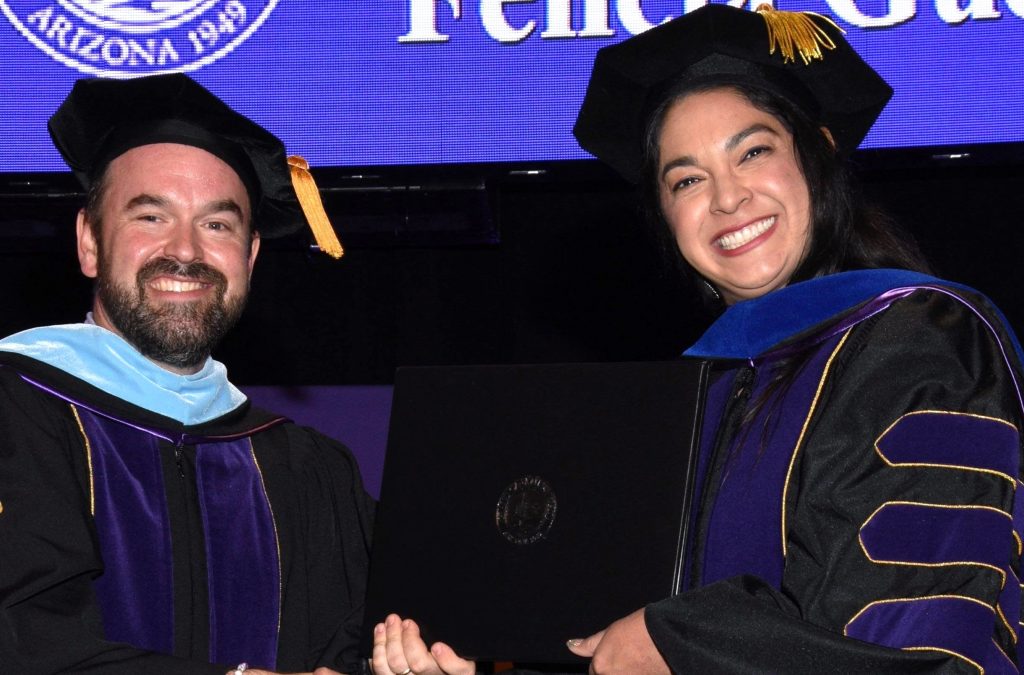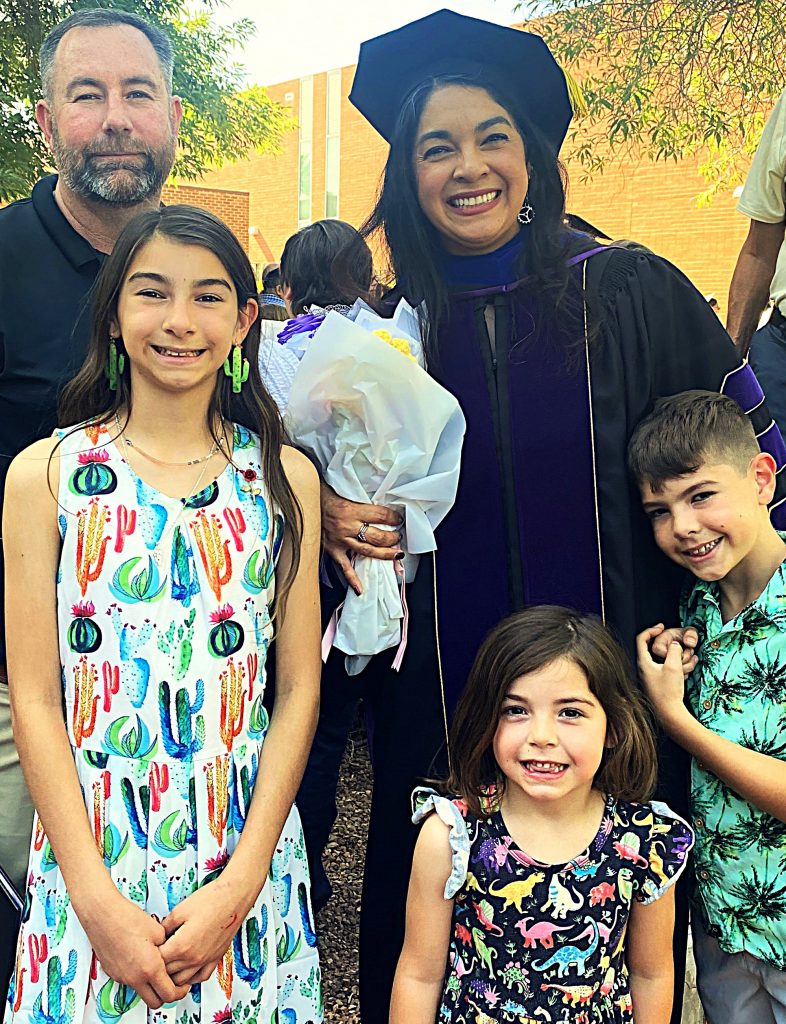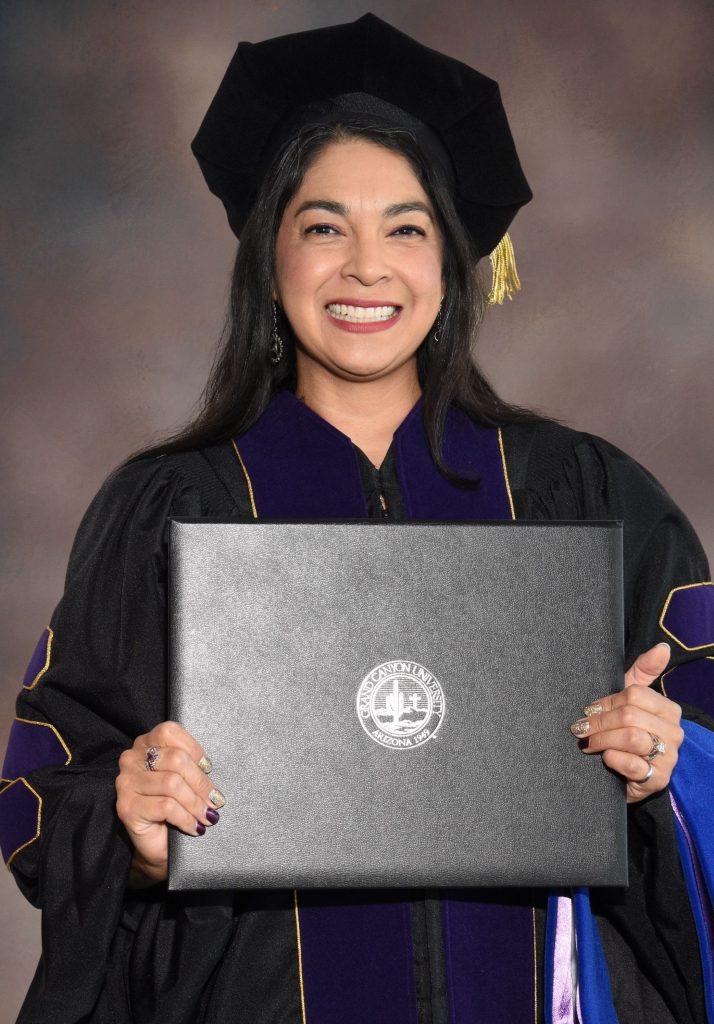
Felicia Guerrero Green had enough.
Five years into her career, at 30, she noticed she was the oldest woman in her mechanical engineering department, and the younger engineers were interns and not full-time employees.
“Is there something going on that I’m not aware of?” she wondered.
Then she noticed there were no women at the leadership levels where she worked.
After watching CODE: Debugging the Gender Gap,” a documentary about the lack of female and minority software engineers, "it lit the fire in me,” Green said.
“My first emotion was anger. From that anger, ‘OK, what are you going to do with that? Are you just going to sit there or try and do something about this?’ “
Green poured into her doctoral dissertation, a qualitative, descriptive study that explored the self-regulation processes of senior technical female engineers.
Her work was so thorough that she was honored this spring as the first recipient of the Dissertation of the Year Award by Grand Canyon University's College of Doctoral Studies.

“She nailed it,” her chair, Dr. Sharon Michael-Chadwell, said of Green’s dissertation, "A Qualitative Descriptive Study on the Influence of Women Engineers’ Career Experiences on their Career Decisions to Persist in Engineering."
Green, who works in the actuation systems division of Collins Aerospace, was shocked when she first learned of her honor.
“It makes me think of all the women I talked to, all the experiences and all of their challenges that they’ve overcome,” Green said.
At one point, she wondered whether she was long for the profession. But she felt a responsibility to stay and help guide young female engineers through the same challenges she was facing.
By making a commitment to address this through a doctoral dissertation, Green believed the time, energy and effort was worthwhile.
“These interns I had that were looking to me like, ‘It feels like this place is going up in flames and it’s kind of the end of the world.' They look to me, as if asking, ‘What do we do?’ Green said.
That’s when she knew she had to do something.
Pursuing a doctorate came at the right time for Green, who earned her master’s degree in mechanical engineering from New Mexico State University in 2008 as part of the Bridge to the Doctorate program funded by the National Science Foundation and Louis Stokes Alliances for Minority Participation program.
The stipulation was that a student’s master’s degree would be financed as long as he or she made a commitment to pursuing a doctorate.
Normally, students would immediately enroll in a doctoral program. But she needed to make a living. She didn’t start pursuing her Ph.D. until 2017.
Green, who is married with three children, selected GCU for her doctoral work because of the program’s flexibility, adding that she liked the online assignments supplemented by a weekly ground cohort class.

“I was able to be with students who were going through the same thing I was,” Green said. “We could compare notes on our progress and journey. Everyone was basically doing the same thing, except completely different topics with completely different ideas on how they wanted to complete their topic.
“But the GCU process of having us all together was really, I would have to say, a key to me completing my degree.”
Michael-Chadwell was effusive in her praise of Green’s execution of her dissertation.
“She did a qualitative study, but during this entire process, that line of being an engineer was evident on how she presented information, presented her data, and the details she went into to prove the answer to her research questions,” Michael-Chadwell said. “I just saw that mind of an engineer working at full term. And she was excited.”
Green said her research was straight-forward.
“My work is in technology development,” Green said. “So we do use the scientific method on a daily basis to try and develop the technology that we’re working with, specifically I work with electromechanical actuators (an alternative to standard hydraulic actuators), and we have a problem. We have these variables that we change.
“And we are methodical in how we how we document every change and how we document every test, and it was very similar to the qualitative method I used that I felt comfortable with all the data I collected. The only difference was I was dealing with words and sentences verses numbers and patterns of numbers.”
Since earning her doctorate, Green has played a larger role in Collins Aerospace in supporting and keeping women engineers. She was accepted into the Institute for Reflective Practice at GGU and remains the co-owner of Engineering Working Moms (a support group for engineers balancing careers and parenthood) and co-leader of the Society of Women Engineers’ Mid-Career Affinity Group.
And she’ll always have the distinction as the recipient of GCU’s first Dissertation of the Year Award.
Michael-Chadwell credits Green's background as an engineer and the process and planning they go through being similar to the doctoral degree process. She said she didn't have to guide Green too much. From the beginning, she had a voice you could hear and didn't have to question: "She took ownership and grabbed it."
GCU News senior writer Mark Gonzales can be reached at [email protected].
***
Related content:
GCU News: From Ghana to Air Force to GCU doctoral degree
GCU News: Retiring staffer helped College of Doctoral Studies grow to 3,500 dissertations



































































